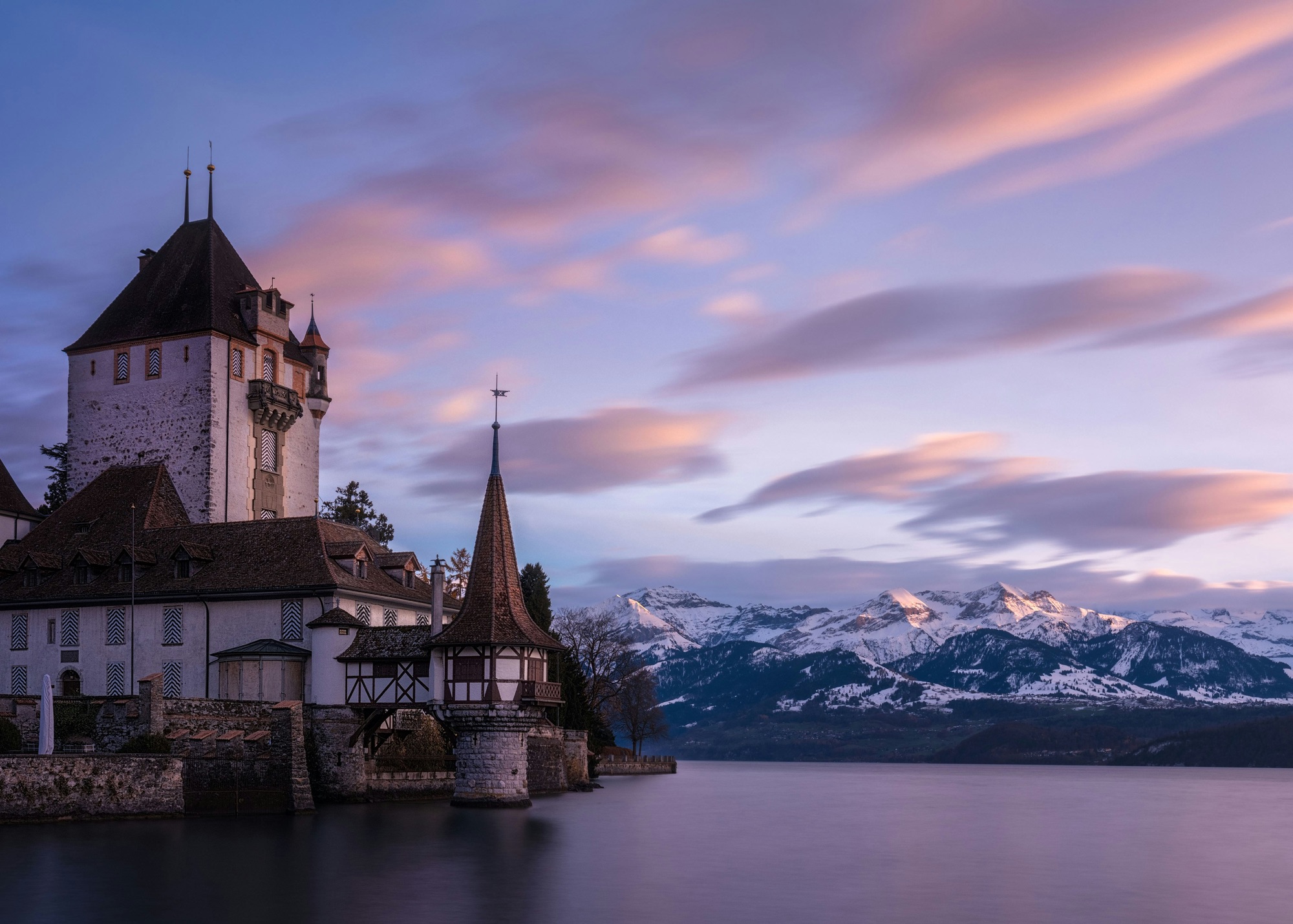Switzerland is a land of stunning landscapes, crystal-clear lakes, towering alpine peaks, and charming cities. Known for its exceptional quality of life, well-organized public services, and as a global hub of diplomacy and finance, Switzerland offers an unforgettable experience for every type of traveler. Whether you’re exploring the historic streets of Zurich and Geneva or skiing in the Swiss Alps, there are several things you should know before traveling to Switzerland. Here are 17 key tips for American travelers heading to Switzerland.
1. Switzerland Is Expensive
Switzerland consistently ranks among the most expensive countries in the world for travelers. Accommodation, dining out, and transportation can be significantly more costly than in the U.S. However, the quality of services and products is exceptionally high, whether it’s Swiss trains running on time or the cleanliness of public spaces.
To save money, consider dining at more casual places like supermarkets (many offer fresh, ready-to-eat meals), or take advantage of budget-friendly hostels. Public parks and nature provide free entertainment with some of the most breathtaking views in Europe.
2. The Swiss Franc Is the Official Currency
Despite being in the heart of Europe, Switzerland does not use the euro. Instead, the country uses the Swiss Franc (CHF). While some tourist-heavy areas may accept euros, change will almost always be given in Swiss Francs, and the exchange rate might not be favorable. Make sure to withdraw Swiss Francs from ATMs or exchange money beforehand.
Credit cards are widely accepted, but having some cash on hand is helpful, particularly in smaller towns or for transportation services.
3. Switzerland Has Four Official Languages
Switzerland has four official languages: German, French, Italian, and Romansh. The language you’ll encounter depends on the region you’re visiting. In Zurich and most of the northern and central parts of Switzerland, Swiss German is spoken. In Geneva and the southwestern part of the country, French is predominant. Italian is spoken in the southern Ticino region, and Romansh is spoken by a small percentage in the southeastern canton of Graubünden.
Most Swiss people speak English, especially in cities, so communication won’t be an issue. However, learning a few key phrases in the local language is always appreciated.
4. Public Transportation Is Efficient and Punctual
Switzerland’s public transportation system is world-class, with an extensive network of trains, buses, trams, and ferries. The trains are particularly noteworthy, known for their punctuality and providing scenic routes through the mountains and countryside. Whether you’re traveling between cities or exploring the smaller towns, public transportation is reliable and easy to use.
For visitors, the Swiss Travel Pass is a great option, offering unlimited access to trains, buses, and boats for a set number of days. It also includes entry to many museums and offers discounts on mountain excursions.
5. Tipping Is Not Mandatory
Tipping in Switzerland is not obligatory because service charges are included in the price of food, drinks, and services. However, if you receive exceptional service, it’s customary to round up the bill or leave a small tip (5-10%). In restaurants, rounding up the total by a few francs is sufficient. For example, if your bill is 47 CHF, rounding it up to 50 CHF would be appreciated.
In taxis or for services like hotel porters, a small tip is also welcome but not expected.
6. Switzerland Is Incredibly Safe
Switzerland is one of the safest countries in the world, with low crime rates. You can feel comfortable walking around both urban and rural areas at any time of the day or night. While petty crime like pickpocketing can occur in crowded tourist spots, it is much less common than in other European countries. Basic precautions, such as keeping an eye on your belongings in busy areas, should suffice.
Switzerland’s safety extends to its well-organized infrastructure, including well-marked hiking trails and secure transportation systems, making it a great destination for solo travelers and families alike.
7. Switzerland Is Famous for Its Outdoor Activities
Switzerland’s stunning landscapes make it a paradise for outdoor enthusiasts. Whether you’re an experienced mountaineer or prefer a leisurely hike, the Swiss Alps offer something for everyone. Activities like hiking, skiing, snowboarding, mountain biking, paragliding, and ice climbing are available year-round. In the warmer months, popular hiking destinations include the Bernese Oberland, Zermatt, and Engadin regions.
If you’re visiting in the winter, Switzerland is one of the world’s top destinations for skiing and snowboarding. Resorts like Zermatt, St. Moritz, and Verbier offer world-class facilities and stunning views.
8. Swiss Food Is Hearty and Delicious
Switzerland is famous for its hearty cuisine, particularly dishes involving cheese and chocolate. You can’t leave Switzerland without trying a traditional fondue, where pieces of bread are dipped into a pot of melted cheese, or raclette, which involves scraping melted cheese onto potatoes and vegetables.
Swiss chocolate is world-renowned, and brands like Lindt, Toblerone, and Cailler have made Switzerland synonymous with high-quality chocolate. You’ll also find a variety of artisanal chocolate shops across the country offering unique flavors.
Rösti (a crispy potato dish) and Zürcher Geschnetzeltes (a veal dish served with creamy white wine sauce) are also classic Swiss dishes you’ll encounter. Switzerland’s food scene has both local specialties and international influences, offering something for every palate.
9. You Can Drink Tap Water
Switzerland is home to some of the cleanest and freshest tap water in the world, sourced from natural springs and glaciers. Public fountains, often beautifully designed and located throughout cities, towns, and even mountain paths, provide safe, drinkable water. This makes it easy to stay hydrated on hikes or during your city explorations without having to buy bottled water.
You’ll rarely need to purchase bottled water in Switzerland, as the tap water is not only safe but often better than the bottled alternatives.
10. Sundays Are a Day of Rest
In Switzerland, Sundays are considered a day of rest, and many shops, including supermarkets, are closed. This tradition is taken seriously across the country, and it’s common for families to spend Sundays relaxing, engaging in outdoor activities, or visiting with friends and family. Tourist attractions, restaurants, and cafes typically remain open, but for any shopping, you’ll need to plan ahead and do it on Saturday.
If you happen to need groceries on a Sunday, your best bet is to visit a store located at a major train station or in airports, as these are some of the few places open on Sundays. These stores typically offer a limited selection, but they’ll have the essentials if you find yourself in need of supplies.
For locals, Sundays are often reserved for leisure activities such as hiking, cycling, or simply enjoying time in nature. If you’re in Switzerland on a Sunday, consider taking advantage of the quiet and explore the beautiful outdoors.
11. The Swiss Are Punctual
In Switzerland, punctuality is highly valued, and being late is generally considered disrespectful. Whether you’re meeting someone socially, attending a business appointment, or catching public transportation, being on time is important. Swiss trains are renowned for their punctuality, and schedules are followed closely. Even if a train is just a few minutes late, you’ll often hear an announcement explaining the delay.
If you’re planning to meet someone or attend an event, make sure to arrive on time or even a few minutes early. Punctuality is seen as a sign of respect for others’ time.
12. Switzerland Is Environmentally Conscious
Switzerland is a global leader in environmental sustainability. The country takes recycling, waste management, and eco-friendly practices very seriously. There are strict regulations for separating waste into categories such as paper, glass, metal, organic waste, and plastic. You’ll find clearly marked bins in most public areas, and it’s important to dispose of your trash properly.
The Swiss are also committed to renewable energy, with a significant portion of the country’s electricity generated from hydropower. Public transportation is widely used and highly efficient, and cities encourage cycling and walking. Visitors are encouraged to be mindful of their environmental impact and to participate in sustainable practices, including minimizing waste and conserving energy.
13. Healthcare Is Excellent but Expensive
Switzerland has one of the best healthcare systems in the world, but it’s also very expensive. For Americans traveling to Switzerland, it’s essential to have travel insurance that covers medical emergencies. If you need medical attention, rest assured that the quality of care is top-notch, but the cost can be high, especially if you require hospitalization or specialized treatment.
Most pharmacists in Switzerland are well-trained and can offer advice or over-the-counter medications for minor ailments. For anything more serious, head to a local clinic or hospital, but be sure you’re covered by insurance.
14. Switzerland Is Neutral, but Very International
Switzerland is known for its long-standing policy of neutrality, especially in global conflicts, but it is also a very international country. Geneva, in particular, is home to the United Nations, the World Health Organization, the International Red Cross, and many other international organizations. As a result, you’ll find people from all over the world living and working in Switzerland, especially in Geneva and Zurich.
The country’s neutrality means that Switzerland often plays a diplomatic role in global affairs, and this international presence contributes to its diverse and multicultural atmosphere.
15. Switzerland Has Some Unique Laws
Switzerland has a number of unique laws that visitors should be aware of. For example, it is illegal to wash your car on a Sunday, as Sunday is seen as a day of rest. Similarly, making loud noises, such as vacuuming or mowing the lawn, is discouraged on Sundays.
There are also strict laws regarding littering and recycling. Throwing away recyclable items in the regular trash can result in fines. It’s important to familiarize yourself with local customs and respect the regulations, as the Swiss take these rules seriously to maintain their country’s cleanliness and orderliness.
16. The Swiss Have a Deep Respect for Privacy
The Swiss are known for their reserved and private nature, and this extends to social interactions. While the Swiss are polite and helpful, they tend to keep conversations more formal, especially with strangers. Unlike in some cultures, it’s uncommon to engage in small talk with people you don’t know well, particularly in public spaces like public transportation.
When visiting Switzerland, be mindful of others’ privacy and personal space. If you’re in a café or on a train, avoid speaking loudly, as it can be seen as disruptive. The Swiss tend to keep a quiet, calm demeanor in public, and maintaining a respectful tone in shared spaces is appreciated.
Swiss people are also known for their discretion when it comes to personal matters, so avoid asking overly personal questions in casual conversation. It’s perfectly fine to enjoy a friendly chat, but be mindful not to overstep boundaries when discussing personal or sensitive topics.
17. Switzerland Has a Unique Cultural Diversity
Although Switzerland is a relatively small country, it has a rich cultural diversity due to its four linguistic regions—German, French, Italian, and Romansh. This means that Swiss culture varies depending on which region you’re in, and each region has its own unique traditions, cuisine, and lifestyle.
- In the German-speaking regions (like Zurich, Bern, and Lucerne), you’ll find an affinity for traditional Alpine culture, with hearty meals and folk festivals.
- In the French-speaking regions (like Geneva and Lausanne), there’s a strong connection to French cuisine, culture, and more laid-back social norms.
- In the Italian-speaking regions (like Lugano and Ticino), you’ll feel a Mediterranean influence, with a focus on Italian food, wine, and a slower pace of life.
Embracing these regional differences is one of the most enjoyable parts of traveling in Switzerland. You can experience a variety of cultures and landscapes within just a few hours of travel, making Switzerland feel like several countries in one.
Conclusion
Switzerland is a land of breathtaking landscapes, efficient infrastructure, and a high standard of living, making it an attractive destination for travelers seeking both adventure and relaxation. Whether you’re skiing in the Swiss Alps, indulging in rich Swiss chocolate, or exploring the multicultural cities, Switzerland offers something for every type of traveler.
Understanding the country’s unique customs, such as respecting privacy, being mindful of environmental practices, and embracing the local linguistic and cultural diversity, will ensure that your trip is smooth and enjoyable. With its commitment to precision, beauty, and sustainability, Switzerland is truly a one-of-a-kind travel destination.




